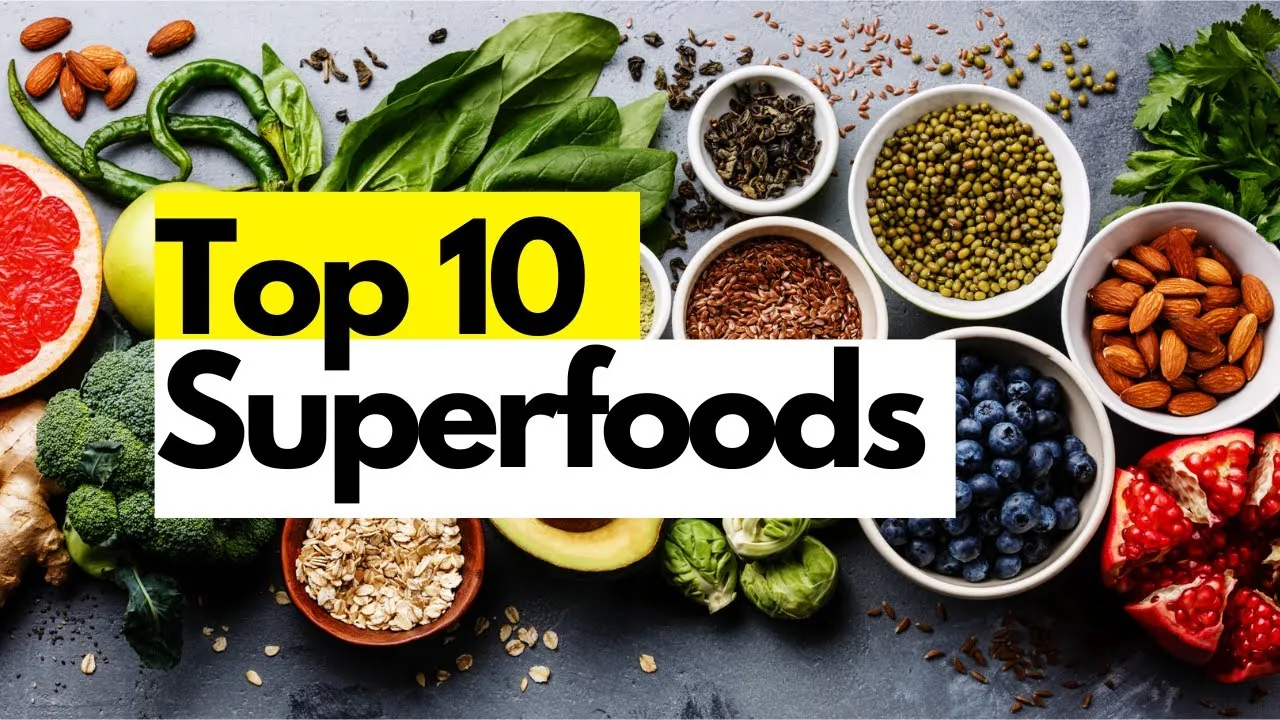Why Nutrition Matters for Muscle Growth
Building muscle isn’t just about lifting weights — it’s about feeding your body the right nutrients to rebuild, recover, and grow stronger. Every time you work out, your muscles experience tiny tears that need to repair themselves. This repair process is where real muscle growth happens, and it depends heavily on the foods you eat.
Including superfoods — nutrient-rich foods packed with protein, antioxidants, and healthy fats — can drastically improve recovery time, enhance performance, and optimize muscle gain. Here are the top 10 superfoods for muscle growth and recovery that every fitness enthusiast should include in their daily diet.
1. Eggs – The Ultimate Protein Powerhouse
Eggs are one of the most complete protein sources available, containing all nine essential amino acids necessary for muscle repair.
Why it’s effective:
Each egg delivers around 6–7 grams of high-quality protein, along with leucine — an amino acid critical for stimulating muscle protein synthesis. The yolk also provides vitamin D, choline, and healthy fats that support overall health.
How to include it:
Enjoy boiled eggs for breakfast, mix them into salads, or make scrambled eggs after your workout.
2. Salmon – Omega-3 Rich Muscle Builder
Salmon is loaded with protein and omega-3 fatty acids that promote muscle recovery and reduce inflammation.
Why it’s effective:
Omega-3s improve blood flow to muscles, reduce soreness, and enhance insulin sensitivity — allowing nutrients to be absorbed more efficiently.
How to include it:
Grill or bake salmon and pair it with brown rice or vegetables for a muscle-nourishing meal.
3. Greek Yogurt – Dual-Action Protein Source
Greek yogurt provides a mix of fast-digesting whey and slow-digesting casein protein, making it ideal for both pre- and post-workout meals.
Why it’s effective:
This combination delivers a steady supply of amino acids, helping your muscles recover over several hours. It’s also rich in calcium, which supports muscle contraction and bone strength.
How to include it:
Add Greek yogurt to smoothies, eat it with berries, or enjoy it as a high-protein snack between meals.
4. Quinoa – The Complete Plant Protein
Quinoa is one of the best plant-based sources of complete protein, containing all essential amino acids — rare for a grain.
Why it’s effective:
It’s packed with magnesium, iron, and fiber, which support muscle function and energy metabolism.
How to include it:
Use quinoa as a base for salads, bowls, or as a healthy replacement for rice or pasta.
5. Chicken Breast – Lean Muscle Fuel
A staple for bodybuilders and athletes, chicken breast is low in fat but high in protein, making it perfect for lean muscle growth.
Why it’s effective:
It delivers roughly 25–30 grams of protein per serving, helping muscles repair and grow faster after intense training.
How to include it:
Grill or bake chicken breast with herbs and olive oil. Pair it with complex carbs like sweet potatoes for a balanced recovery meal.
6. Almonds – Energy-Dense Recovery Snack
Almonds are packed with healthy fats, protein, and magnesium — essential for muscle contraction and energy production.
Why it’s effective:
Magnesium plays a key role in reducing muscle cramps and fatigue, while healthy fats keep you feeling full and energized.
How to include it:
Snack on raw almonds, sprinkle them on oatmeal, or blend into smoothies for a protein-rich boost.
7. Sweet Potatoes – The Perfect Complex Carb
Sweet potatoes are an excellent post-workout carbohydrate source that helps replenish glycogen stores depleted during exercise.
Why it’s effective:
They’re rich in potassium and vitamin C, which aid in muscle recovery and immune function.
How to include it:
Bake, roast, or mash sweet potatoes and enjoy them alongside protein-rich foods for balanced nutrition.
8. Spinach – Iron-Rich Muscle Support
Spinach is a nutritional powerhouse loaded with iron, magnesium, and nitrates that improve muscle efficiency.
Why it’s effective:
The nitrates in spinach enhance blood flow, allowing more oxygen and nutrients to reach your muscles during and after workouts.
How to include it:
Add fresh spinach to omelets, smoothies, or salads for an easy nutrient boost.
9. Cottage Cheese – Casein Protein for Night Recovery
Cottage cheese is a slow-digesting protein source that supports overnight muscle repair and growth.
Why it’s effective:
Its high casein content ensures a steady release of amino acids while you sleep, preventing muscle breakdown.
How to include it:
Eat cottage cheese as a bedtime snack with a few slices of fruit or nuts.
10. Blueberries – The Antioxidant Recovery Food
Intense workouts create oxidative stress in your muscles. Blueberries combat this with their powerful antioxidant content.
Why it’s effective:
They reduce inflammation, speed up muscle recovery, and help repair damaged cells.
How to include it:
Add blueberries to your morning oatmeal, yogurt, or protein shakes for a nutrient-rich start.
Building a Superfood-Focused Meal Plan
For optimal muscle growth and recovery, timing and combination of foods matter. Pairing protein with complex carbs and healthy fats ensures steady energy and continuous muscle repair.
Sample daily structure:
-
Breakfast: Scrambled eggs with spinach and sweet potato
-
Snack: Greek yogurt with blueberries and almonds
-
Lunch: Grilled chicken with quinoa and vegetables
-
Snack: Protein smoothie with banana and cottage cheese
-
Dinner: Baked salmon with brown rice and roasted veggies
This combination provides everything your body needs — protein for growth, carbs for energy, and healthy fats for recovery.
Fuel Your Body, Build Your Strength
Superfoods are more than just trendy — they’re essential building blocks for strong, resilient muscles. By incorporating these nutrient-dense foods into your diet, you’re giving your body the foundation it needs to perform, recover, and grow naturally.
Eating smart is just as important as training hard — and with the right fuel, your progress will accelerate faster than ever.







